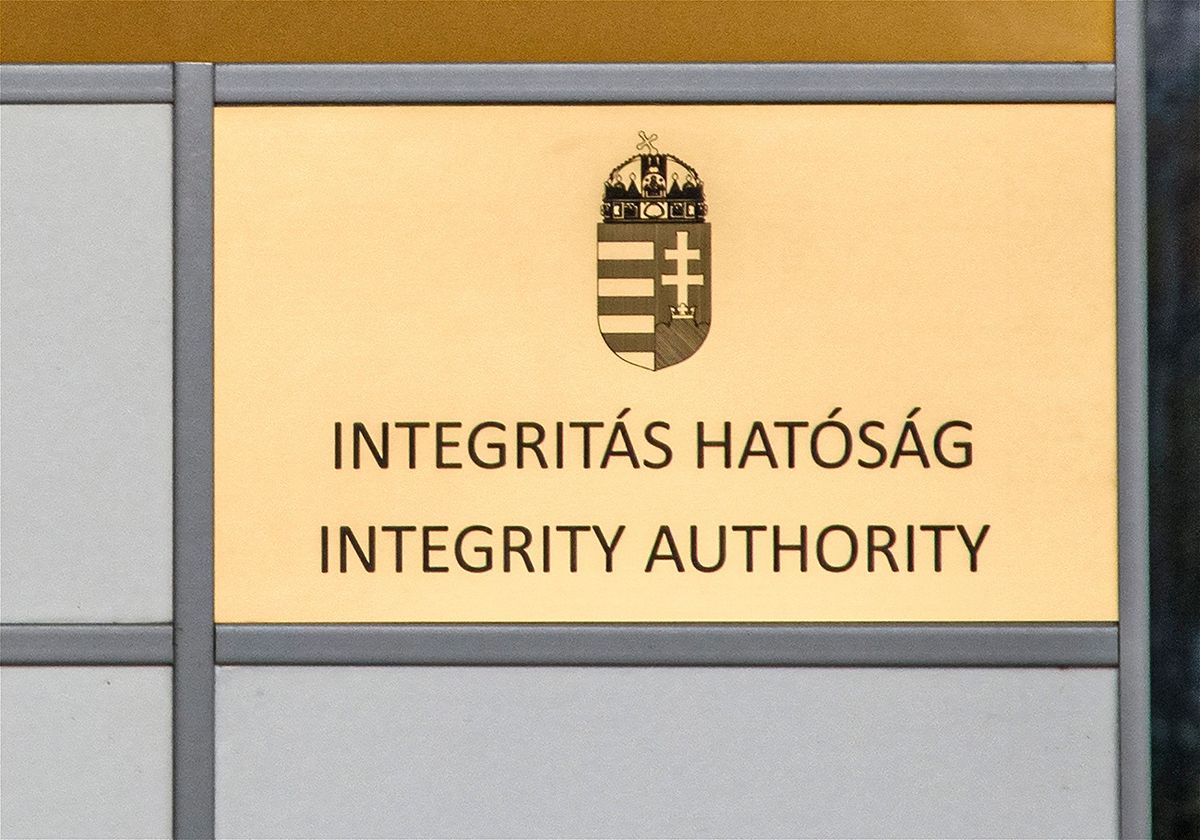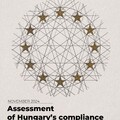2022 has been a turbulent year for asset declaration rules in Hungary. The government has repeatedly amended the way in which lawmakers and government leaders are required to declare their incomes and assets. While the head of the Authority for Data Protection and Freedom of Information criticized the current scheme and the European Commission’s position as well, a new institution appeared on the scene upon the negotiations with the EC: the Integrity Authority.

Building of the Hungarian Parliament
The rules on asset declarations are laid down in the Act on the National Assembly, including deadlines, the content of declaration and rules of enforcement. Since senior government officials’ assets declaration scheme is based on the rules applicable to MPs, the scope of the Act actually extends beyond MPs. Furthermore, different legislation applies to lower level officeholders of public administration and local government leaders, these remained unchanged in 2022.
The Act on the National Assembly was amended several times during 2022. First, the Hungarian government copied the declaration sheet of MEPs at the beginning of the summer. The amendment, intended as a slap in the face to the European Commission, significantly reduced the information to be provided in the declaration. The first amendment completely removed the asset items, introduced income bands instead of exact incomes, abolished relatives’ duty to declare, and required MPs to share information only when they considered it justified, instead of annual declarations. K-Monitor flagged the shortcomings of the version adopted last summer.
After the Hungarian government had been reluctant to make any substantive steps in the conditionality procedure triggered by the European Commission in April 2022, several laws were adopted in quick succession in the autumn ‘to reach an agreement with the European Commission.’ The intensified lawmaking has also affected the Act on the National Assembly, the content of which has changed six times since June last year. Recent changes have reinstalled the asset declaration system to its much-criticised old form, only adding new loopholes while preserving the system's flaws and shortcomings.
Rules as of 2023 Q1
As previously, the law requires MPs to make a declaration by 31 January each year after taking up their mandate, and then at the end of their term. The old rule, according to which a spouse or partner living in the same household, as well as of their children should submit a declaration too, applies, however, their name won’t be published in the future. MPs' declarations are public, while those of family members are only accessible to the MPs sitting the parliamentary committee assigned to handle immunity matters. Even then access is only granted in cases when a procedure to examine a suspicious declaration is initiated.
Anyone can file a complaint to the committee, but the body is not obliged to launch a procedure upon the complaint automatically. The procedure is subject to the condition that the complaint specifically refers to the fact that is missing or has been falsely stated. As the declarations are not public in the case of relatives, citizens can at best make a blind guess as to what fact may be missing or untrue in the family declarations, thus this element of the declaration system remains disfunctional.
If the committee does launch the procedure, it may verify the content of the declarations. However, without launching a procedure, the committee is not required to examine and verify the accuracy or completeness of the information.
Once a procedure is initiated, the MP can still correct the declaration and add the missing information without facing consequences. Although the law provides that the committee may ask the Assembly to declare a conflict of interest, as a last resort, leading to the termination of the mandate, in practice, this is unlikely to happen since MPs simply correct their declarations before reaching this point.
 Photo: Róka László / MTI
Photo: Róka László / MTI
A New Institution - the Integrity Authority
From April 2023, a new institution will appear in the field of asset declarations. The Integrity Authority, a new state agency set up in November 2022 to protect EU funds, will be able to verify the asset declarations of several officials but only ‘in the course of performing its duties.’ It will also have the right to initiate procedures at other bodies. What exactly this means is still unclear. As the Authority's powers are exclusively related to the protection of EU funds, thus the possibility of verifying asset declarations may only arise in the context of EU funds.
The legislation governing the Authority distinguishes between two categories of officials. For the first category of public officials, the Authority may itself carry out a so-called ‘asset declaration inquiry’ before initiating the asset declaration procedure at the competent body. What this means is not specified in the legislation yet. In the case of the second group (e. g. MPs), the Authority is not allowed to make an inquiry but only initiate proceedings before the competent body.
Another group is defined as those who do not belong to any of the above but have the right to propose, decide or control EU funds. For example, those who are required to declare their assets in public procurement procedures. In their case too, the Authority can only initiate a procedure but cannot conduct its own inquiry.
Under the new rules, the Authority has therefore not taken powers away from other bodies, but will have some kind of investigative role in relation to the first group and a complementary role for the other two groups. However, the Hungarian government has committed in its RRP (national recovery and resilience plan) that by spring, the Authority will take over the role of verifying the declarations of political government leaders.
Besides these powers, the Authority is called upon to make assessments and publish reports. In its Annual Integrity Report, due by 30 June 2023, the Authority will be required by law to review the whole asset declaration system, and by 31 December 2023, it will prepare an ad hoc report reviewing the regulatory framework and functioning of the Hungarian scheme.
Old and New Deficiencies
Hidden transactions
One of the very few positive changes implemented in Summer 2022 was the requirement to update declarations if changes occur among incomes (while annual declarations were unfortunately abolished). Since Hungary’s old-new system only prescribes annular declaration, transactions that happen between the declaration deadlines can go unnoticed (e.g. if an MP acquires a house or receives a loan, but sells or repays it quickly). This happened in the case of former state secretary Völner who was involved in the corruption scheme connected to the Bailiff Chamber and might have obtained real estate at an auction by bailiffs and sold it immediately to his son. The transaction never appeared in his asset declaration.
Recommendation:
- Updates of declaration should be necessary between annual reporting periods.
- Or all transactions of the reporting period should be listed in annual declarations even if assets, financial or business interests are not anymore in possession of the declarant.
Invisible Properties
The old rules made no distinction between real estates: everything owned by the MPs had to be listed in the declaration. Under the new rules, however, the flat or house serving for the exclusive use of the MPs and their family living in the same household no longer has to be indicated. This means that the most important and often most visible property, that is the MPs’ home remains hidden. This is a significant deterioration compared to the pre-2022 system that cannot be justified by any argument as the need for the disclosure of all real estates has never been questioned or debated before the 2022 reforms. Furthermore, it is unclear how it can be checked which property is for the ‘exclusive use’ of MPs and their relatives, if it is not even declared. Privacy related concerns can hardly be taken into account as only the name of the city had to be disclosed, not the exact address or the land register reference of the property. Furthermore, it is a common practice that officeholders use real estates or cars owned by someone else, provided as a favor.
Recommendation:
- All real estates owned by MPs and government leaders should be listed in the declaration indicating the municipality where it is located.
- All properties must be listed with an identifier that allows for the identification of the asset by relevant authorities and bodies (e.g. land register mark, license plate, registration number, bank account number). This information may be excluded from publication.
- Assets not owned by the declarant but available for regular use should be listed too.
- An improvement compared to the previous system would be the requirement for declarants to provide additional information on their real estates and other assets that have to be declared (e.g. license plate, bank account number, etc) in a non-public part of the declaration that helps to identify them in case of verification by the entitled bodies.
Invisible Relatives
While politicians used to have to declare who they live with, they are no longer obliged to do so under the current rules. This way, citizens can barely have a clue how many relatives made and submitted their asset declarations as the MP's declaration does not show either the number of relatives or their name. The secrecy of relatives' declarations is highly problematic because it is common practice for politicians to transfer their assets to their spouses or children to avoid public scrutiny. Since the documents are not public, in practice, no one is able to file a proper complaint about their content. GRECO has also previously criticized the opacity of spousal declarations.
Recommendation:
- In the case of MPs and senior government officials (ministers, secretaries of state), relatives’ (living in the same household) declarations should also be public and fully accessible online.
- In case they remain exempted from publication, a verification procedure should be made available even without exactly specifying the item of concern.
Income Ranges Instead of Specific Amounts
While the requirement to declare not only the current income but also income over the past 3 years was a welcomed move, the declaration is hardly helpful in keeping track of MPs' finances. Politicians no longer need to declare specific amounts, but can simply put an X mark on a five-digit income scale. This helps to obscure the higher incomes in particular, as the highest category is EUR 12.500 / month gross and above. Furthermore, the asset declaration system does not require declarants to submit information on optional agreements. However, it is a known scheme to hide assets and businesses by handing them to provisional owners who are obliged by contract to return / sell them the assets if requested. This phenomenon is not covered by conflict of interest checks. In addition, MPs are not obliged to declare all their business interests but only those they consider conflicting with their office.
Recommendation:
- MPs should declare exact incomes as in the previous system.
- MPs should declare all their business interests and positions, even if they don’t consider it conflicting with their public office.
- Beneficial ownership shall be indicated as well to enable conflict of interest checks.
- Also in a nonpublic part, declarants should provide if they have optional agreements that allow them to purchase or repurchase assets or business interests.
No Real Monitoring, No Real Enforcement
Although the Integrity Authority will have a role in controlling declarations as of 2023, it is still not clear how the Authority would solve a long-standing problem: the lack of effective monitoring of asset declarations. Despite the availability of relevant registries and databases, neither the parliamentary committee nor the Tax or the Integrity Authority are obliged to regularly check against them, whether MPs have made incomplete or false declarations. The lack of effective monitoring has also been criticized by the European Commission in its 2022 Annual Rule of Law Report and by the GRECO in its 2020 report.
Recommendation:
- A standardized, electronic, public asset declaration database should be set up in which all asset declarations completed during the mandate of an official and any amendments thereto are available. This has been already promised by the government to launch soon.
- The accuracy of the data indicated in the declarations should be checked automatically by the Tax / Integrity Authority or SAO.
- Automatic comparison of asset declarations against tax returns should be provided.
- The parliamentary committee and the Integrity Authority should examine all complaints on merit and an automatic wealth assessment to detect unexplained enrichment.
Effective Sanctions Missing
Not only is real monitoring missing, but there are no real consequences for breaches of law. Although the Parliament Act states that failure to declare assets can lead to the loss of a mandate, this is never done because if caught, MPs simply correct their declarations.
The same problems apply to the declarations of government officials, as ministers have to fill in their declarations pursuant to the rules of MPs. The lack of any consequences is well illustrated by the story of Mr Márton Nagy’s declaration. In his declaration, the minister inadvertently indicated that he was a member of the supervisory board of a company. Even though this position was incompatible with his ministerial office, nothing happened when K-Monitor filed a complaint to the parliamentary committee. The minister simply resigned his membership from the board and deleted the company from his declaration.
Recommendation:
- The Criminal Code should criminalize failing to submit comprehensive and accurate declarations.
- Imprisonment, fines and disqualification from holding public office or occupations involving public funds should be imposed on those who make purposely false or incomplete declarations or completely fail to make such declarations, depending on the gravity of non compliance.
Submitted but Unreadable
Currently it is still up to MPs whether they wish to fill in their declarations by hand or by a computer. Manual completion often leads to illegibility, and uploading scanned documents makes it difficult to understand the information provided. The Government has pledged to set up an electronic, digital format for asset declarations in its RRP. The situation has been criticized by GRECO for years.
Recommendation:
- The law on asset declarations should explicitly require that the declaration be made only electronically in a machine-readable format for all types of asset declarations.
- Any declaration made in breach of this rule shall be deemed not to have been submitted.
- It should be specified how declarations shall be submitted electronically and how information will be made available to the public. Data should be comparable over years and downloadable in bulk.
Great Expectations?
In the hope of accessing EU recovery funds, the government has committed to take concrete measures to introduce an ‘effective, proportionate and sufficiently dissuasive system of sanctions’ by the third quarter of 2023, as part of the National Anti-Corruption Strategy and Action Plan. However, commitments are vague and can be easily hollowed out.
Meanwhile, Mr Attila Péterfalvi, president of the Authority for Data Protection and Freedom of Information, said in a statement to Index.hu that a European-level asset declaration regulation is needed because the national scheme is not in line with data protection rules. He also complained that the current rules are not adequate for their objective, as no one has ever been prosecuted based on them. Only burglars planning to break into politicians' property and the tabloid media can benefit from the current rules, he said. In addition, the president mentioned:
‘As for Brussels' policy towards Hungary, I wonder what the EU would say if I were to scrap the old-new asset declaration rules currently in force, saying that in my view they are contrary to EU data protection law. I would also be very curious to see how the Court of Justice of the European Union would argue that the EU institutions' asset declaration regime is compliant everywhere but not in Hungary.’
He was referring to the fact that the Commission did not find the Hungarian rules copying the MEPs' declarations proper last summer.
K-Monitor, together with TI Hungary, has been calling for a reform of the asset declaration system for almost a decade. In addition to the declarations of MPs and government officials, the scheme is also problematic at the local level (e.g. mayors) as well as state-owned companies (the control of entire sectors have been outsourced to them, such as tourism or the reuse of public sector information). Both types of entities decide over billions of EU and national funds. If no ambitious reforms are implemented, the government managed to fool the EU: under the guise of anti-corruption measures, it has managed to further undermine the transparency of the asset declaration system.
If you would contribute to the fight against corruption in Hungary,
Support K-Monitor with a gift!
Címkék: english EU conditionality
Szólj hozzá!
A bejegyzés trackback címe:
Kommentek:
A hozzászólások a vonatkozó jogszabályok értelmében felhasználói tartalomnak minősülnek, értük a szolgáltatás technikai üzemeltetője semmilyen felelősséget nem vállal, azokat nem ellenőrzi. Kifogás esetén forduljon a blog szerkesztőjéhez. Részletek a Felhasználási feltételekben és az adatvédelmi tájékoztatóban.





